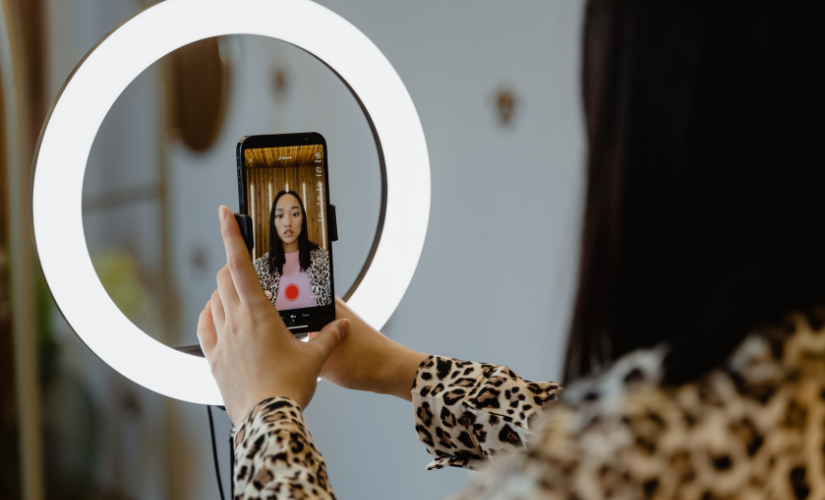Over the past few years, a significant cultural shift has emerged in the drinking habits of Generation Z, (the cohort born between 1997 and 2012 - in case anyone is still confused by this terminology – I am!) Unlike previous generations, Gen Z is increasingly turning away from alcohol, prioritising their health, mental well-being, and social-consciousness over traditional drinking culture. This movement has spurred the rapid growth of the low and no-alcohol beverage market in the UK, as brands rush to cater to the preferences of this health-aware and trend-setting generation.
For Gen Z, wellness is more than a trend—it's a lifestyle. The focus on mental health, fitness, and self-care has made many young adults reconsider their relationship with alcohol. A study by Drinkaware reported that 15% of UK adults aged 18 to 24 are now teetotal, and a growing number are "sober-curious," interested in reducing their alcohol intake rather than eliminating it completely.
Several factors are driving this shift:
• Health consciousness
• Social media pressure
• Mental health awareness
• Financial awareness
As a result, low and zero-alcohol beverages have become a booming industry, with brands launching innovative alternatives to cater to this generation's needs.
The Success of Low and No-Alcohol Brands
Brands in the low and no-alcohol market have tapped into the growing demand for alternatives to traditional alcoholic beverages. From zero-proof spirits to low-alcohol beers, there are now a wealth of options on the market that promise a similar social experience without the alcohol.
Some of the most successful products include:
Seedlip
As one of the pioneering brands in the zero-proof spirits category, Seedlip offers non-alcoholic distilled spirits that look, feel, and taste like traditional spirits but without the alcohol. Seedlip's focus on sustainability, natural ingredients, and creative branding makes it a hit among eco-conscious Gen Z consumers.
Why it works:
• Wellness and natural ingredients: Seedlip taps into the holistic wellness trend by promoting its all-natural, botanical ingredients. Gen Z loves transparency and knowing what goes into their drinks.
• Elegant branding: Seedlip’s minimalist, high-end packaging appeals to the generation's desire for aesthetically pleasing products that align with their personal brand.
• Event partnerships: Seedlip is frequently seen at wellness events, yoga festivals, and eco-friendly gatherings, associating the brand with a balanced, mindful lifestyle.
Lucky Saint
Lucky Saint, a UK-based brand, has successfully captured the attention of young adults with its unfiltered, alcohol-free lager. The brand has focused on building a premium product that doesn't compromise on taste, targeting craft beer enthusiasts and those seeking high-quality alternatives to alcohol.
Why it works:
• Authentic storytelling: Lucky Saint’s branding is built on authenticity and craft. The brand focuses on traditional brewing techniques to position itself as a premium choice for those who want to cut back on alcohol without sacrificing taste.
• Appealing to experience-driven consumers: By marketing its lager as an experience—complete with full flavours and premium quality—Lucky Saint appeals to Gen Z’s desire for meaningful consumption. They don't just want a drink; they want an experience that matches their values.
Heineken 0.0
Heineken 0.0 has been a game-changer in the low-alcohol beer market. The global beer giant’s move into alcohol-free beverages resonated not only with Gen Z but with older consumers as well. What sets Heineken 0.0 apart is its clever positioning in the market. The brand uses humorous, relatable ads that highlight the normalcy of choosing an alcohol-free option, making it more socially acceptable.
Why it works:
• Inclusive marketing: Heineken’s ads often feature young people choosing Heineken 0.0 during everyday activities, from office meetings to gym sessions, making the product seem ideal for any occasion.
• Social normalisation: Heineken smartly focuses on the message that choosing alcohol-free doesn’t mean missing out on fun. It emphasizes a “same great taste, no alcohol” angle, reducing the stigma around non-drinkers.
• Global appeal: Their ads are designed to be universally relatable, appealing to the broader theme of self-improvement that resonates with Gen Z.
Even Guinness, the OG of pub-life, has turned its attention to the low-alcohol market and the brand is reaping the rewards, winning the coveted Gold Award in The President’s Prize for Next Generation Brand Building category at this week’s IPA awards.
Guinness’ winning campaign centred on reinvigorating the brand’s identity, especially in increasing competitive the low-alcohol market. The strategy involved highlighting Guinness' unique qualities, both in terms of product and brand heritage. By reinforcing its cultural resonance in Great Britain and Ireland, Guinness was able to supercharge its growth, capitalising on the surge of health-conscious consumers seeking lower alcohol options. The campaign not only delivered robust market growth but also secured The President’s Prize for its innovative approach to engaging the next generation of customers.
How Marketing Campaigns Are Engaging with Gen Z
Successful marketing to Gen Z requires more than just great product design; it demands a deep understanding of the generation’s values and communication style. The brands that are winning in the low and no-alcohol sector are those that have embraced this new, health-driven mindset and deployed advertising and marketing campaigns that resonate with the younger, more socially-conscious audience.
Here’s why their campaigns work so well:
• Focus on health and wellness: Ads for low and no-alcohol drinks often emphasise wellness, mental clarity, and physical fitness—values that resonate deeply with Gen Z. Brands like Seedlip lean into the health aspect by showcasing clean ingredients and wellness-focused lifestyles.
• Social media savvy: Gen Z spends a considerable amount of time on social media platforms like Instagram and TikTok. Successful brands use these platforms to engage with consumers through influencer partnerships, user-generated content, and viral challenges. Heineken, for instance, uses relatable humour and behind-the-scenes content to humanise their brand.
• Sustainability and ethics: For Gen Z, sustainability is non-negotiable. Brands like Seedlip, with its focus on eco-friendly practices and natural ingredients, cater to this value, ensuring that consumers feel good about their purchase on both a personal and planetary level.
• Relatable, real-life messaging: Brands have shifted away from the exclusive glamour associated with traditional alcohol advertising and now focus on inclusivity and normalcy. Heineken 0.0’s campaign, which normalizes alcohol-free choices in everyday scenarios, is a great example of how to make non-drinkers feel included rather than outcast.
Gen Z is Redefining the Beverage Market
As Gen Z continues to redefine cultural norms around drinking, the low and no-alcohol beverage market is set to keep growing. New brands like Seedlip, and Lucky Saint AND some of the more forward-thinking OG giants like Guinness and Heineken, have become leaders in this space by recognising the importance of health, authenticity, and inclusivity. Their success lies in not just offering a product but creating a lifestyle that aligns with the values of today’s younger consumers. As this trend evolves, we can expect more brands to join the movement, each one competing for a piece of this thriving and rapidly expanding market.



.png)
.png)
